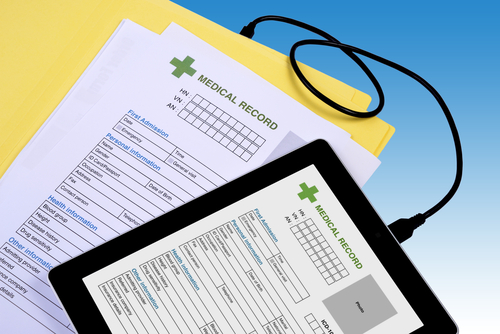Digital technology, no matter how you look at it, is transforming the way healthcare professionals interact with each other and their patients.
Whether it’s reviewing lab results or scheduling appointments, IT systems have evolved at a pace that is making paper based systems increasingly look out-dated and ineffective.
The bulk of my work involves advising IT vendors on how to approach the healthcare market, but occasionally it’s important to go back to basics in order to support hospitals to make the right decisions about the technologies they need. Based on that, below are five types of systems that every hospital should be investing in today:
Speech Recognition within Digital Technologies
Paper based systems are costly and inefficient and there’s nothing like the sight of a stack of notes to darken the mood of any doctor’s day.
Although many hospitals are driving projects to convert their paper records into electronic ones, focusing on maintaining the digital status quo is a must.
Speech recognition systems offer significant potential to directly input data into personal health records whether in the clinic or at the bedside.
These systems support significant productivity and document turnaround time improvements whilst also cutting resource costs such as paper, ink and unnecessary labour.
Electronic Document Management (EDM)
There are various options that hospitals can look into when developing an electronic health records (EHR) system. These include:
 Opting for a single supplier
Opting for a single supplier- Mixing and matching different specialised components to build the overall electronic health records system
An EDM can form the central unit of the bespoke approach providing hospitals with a vendor neutral archiving system with advanced features for data access and sharing.
No matter what your approach for digital technology, EDM should be part of your considerations.
Clinical Portals in Digital Technology
A significant number of hospitals have multiple electronic health records systems already set in place across their departments, and integrating these together can often prove to be a challenge.
Ultimately, the success of these systems is based on user satisfaction; doctors and nurses in most cases.
Clinical portals are the dashboards which integrate and present all the information from this multitude of disparate systems, and lacking one of these can be the crucial reason why significant digital technology investments can fail in healthcare.
Mobile role in Digital Technology
When you’re researching the world of health IT, you’re never too far away from a discussion about the role of tablets and apps.
Apps on their own are close to useless, but as a part of larger systems, become the gateways to accessibility and functionality.
More importantly, they offer mobile functionality allowing the multi-disciplinary practice of medicine regardless of location.
Mobile projects range from the ridiculously simple to the overly complex but planned accordingly can redefine the delivery of healthcare.
Analytics within Digital Technology
While currently not a priority for many while seeking to optimise data collection and accessibility, eventually data needs to be converted into actionable information.
There are an increasing number of clinical analytics systems coming to the market offering trend detection for population health management as well as financial management.
Clinical analytics systems should be considered and incorporated as a part of the timeline of any digital technology plan.
So there you have it, a high level view of some of the key systems that healthcare providers and governments should be investing in and optimising.
The first steps must concentrate on data management at the infrastructural level, after which a host of additional systems can come into play ranging from care co-ordination to remote monitoring and diagnostics.
Dr Saif Abed is a featured contributor for nuviun. He is a medical doctor, writer and corporate strategist specialising in healthcare informatics in London, England. You can find out more about him and his firm’s work by visiting www.abedgraham.com

